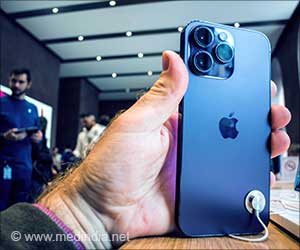Phones have been part of our lives since Alexander Graham Bell invented the first telephone in 1876. However, their function and significance have dramatically evolved over the past few decades. No longer restricted to long-distance communication, modern phones, especially mobile or smartphones, have become multifunctional devices that are fully integrated into our daily routines. They function as pocket-sized computers and enable us to perform various tasks essential for contemporary living (
).
Numerous research studies have already highlighted potential risks and drawbacks associated with sleeping in close proximity to your phone, underlining the potential adverse effects on users’ health and overall well-being.
Apple’s Guidance on Charging
In this guidance, the technology company advises that iPhones should be exclusively charged in well-ventilated environments and on flat surfaces such as tables. It explicitly discourages charging on soft surfaces like blankets, pillows, or your own body.
Advertisement
As detailed in the advisory, iPhones generate heat during the charging process. When this heat is unable to dissipate effectively due to confined spaces, it increases the risk of causing burns or, in more serious cases, sparking fires. Consequently, placing a charging phone beneath your pillow is considered one of the most hazardous practices that smartphone users can engage in.
The primary message conveyed directly by the technology company is as follows: “Do not sleep on a device, power adapter, or wireless charger, or place them under a blanket, pillow, or your body when it’s connected to a power source. Keep your iPhone, the power adapter, and any wireless charger in a well-ventilated area when in use or charging. Be especially cautious if you have a physical condition that affects your ability to detect heat against the body.”
Smartphone Usage and its Impact on Sleep Quality
For many people, the last thing they look at before going to bed (and the first thing they see upon waking up) is their phone. Engaging in activities on the phone before sleep can lead to a compulsive desire for continued interaction. Scrolling, clicking, reading, and posting can be stimulating and addicting.
This can delay bedtime, resulting in reduced total sleep time and potential sleep deprivation. Additionally, excessive stimulation from phone activities can make it difficult to relax and fall asleep.
The light emitted by phone, tablet, or computer screens can affect the ability to fall asleep. Even small amounts of artificial light from screens can disrupt the circadian rhythm and delay sleep onset.
There are compelling reasons to keep your phone out of the bedroom. This prevents prolonged use when transitioning to sleep and reduces the chances of compulsive checking if you wake up during the night.
Electromagnetic fields produced by phones have raised concerns about health risks, although there is currently no conclusive research linking them to adverse health outcomes.
Small Changes that can be made to Improve Sleep
Recognizing that phones can disrupt sleep, making simple changes can help improve sleep quality:
Optimize Sleep Environment:
Enhance your bedroom for optimal sleep. Reserve the bed solely for sleep and intimacy.
Turn off Sleep-Tracking Apps:
Avoid using apps that track sleep patterns, as they may disrupt sleep by over analyzing movements.
Create a Buffer Zone:
Dedicate the last hour before bedtime to relaxing activities that prepare you for sleep. Reduce screen exposure and switch devices to night mode.
Remove Phone From Bedroom:
Charge your phone in another room like the kitchen. Emergency alerts can wait until morning.
Use an Alarm Clock:
Opt for an independent alarm clock instead of relying on your phone’s alarm.
By implementing these changes, you can minimize the negative impact of phones on your sleep quality and overall well-being.
Reference :
- Brain health consequences of digital technology use – (https:www.ncbi.nlm.nih.gov/pmc/articles/PMC7366948/)
Source: Medindia



